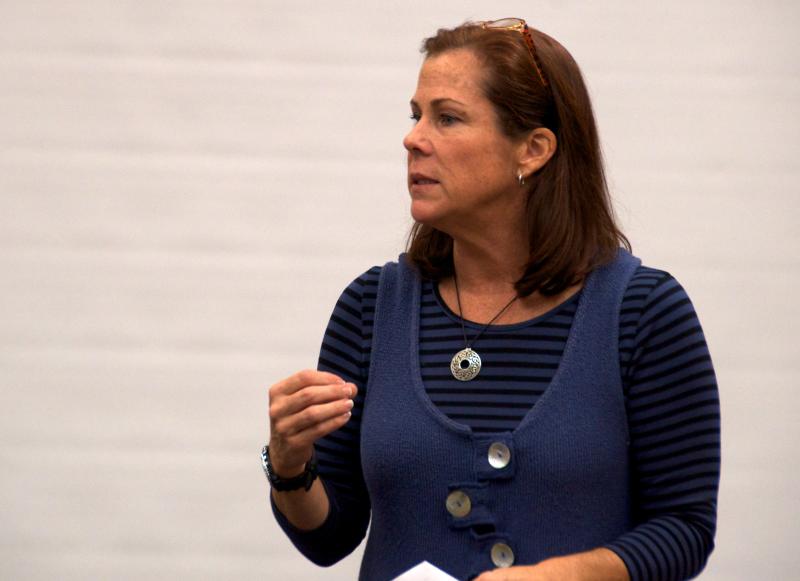Kids 101: Nurse gets real on understanding tweens, teens
Sometimes decoding a pre-teen or teenager may seem like it requires top CIA clearance, but Katie Collins has a solution for uncommunicative kids.
“If you can’t get them to talk to you, lock them in a car and hit the highway. They can’t jump out at 65 MPH,” she said.
Collins, a registered nurse, a mom and someone who has worked extensively with tweens, recently spoke to parents at Old Rochester Regional Junior High on how to understand their kids.
And, no subject was off limits. From sex to cutting, Collins ranged the gambit of scary subjects that parents need to be aware of, as well as, discussing how to confront problems.
“We need to love them unconditionally, give them confidence, guide them,” said Collins. “They won’t tell you, but more than 85 percent of kids care exactly what you say.”
Starting off with the “s” word, Collins said it’s important to talk about sex as kids have questions. Telling kids “don’t do this and don’t do that” doesn’t work, she said.
“They want to know about sex. They’re curious. It doesn’t mean they’re going to have sex,” she said.
Drugs is also something that needs to be discussed openly. Collins encouraged asking kids questions and emphasizing that, no matter what the situation, you want them to talk to you openly.
“If they don’t have somebody to talk to without being judged, it’s going to be a tough time,” said Collins, and that goes for depression and suicidal thoughts.
As pre-adolescents and adolescents Collins said “black” periods are common as kids go through changes, but parents also need to watch out for depression and suicidal behavior.
Warning signs include when a kid discusses suicide, starts giving away valued things, or is down for a lengthy time and then suddenly happy. Collins said it’s important to ask questions.
Eating disorders and issue like cutting also require parents to ask the hard questions.
For eating issues like bulimia and anorexia, Collins said parents are often a large part of the problem. She told parents to be careful about what they say regarding their own self-images. Discussing a dieting plan in front of kids can be more harmful than parents realize, she said.
“Tell them, ‘I shouldn’t have said that.’ They think you’re pretty cool just the way you are.”
Expressing that in return is important, especially for fathers and daughters. “When girls have an eating disorder, it’s often a problem with dad,” said Collins.
She said fathers have to acknowledge that their little girls are growing up. They also need to emphasize internal qualities, “not just beauty or that they’re good at athletics,” she said.
Regarding cutting, Collins explained, “Usually something inside is going on that they need to express outwardly. You can’t just say stop it.”
Contrary to what many believe, she said few kids cut themselves for attention, but rather a response to anxiety. Collins said replacing destructive behaviors with more positive actions, such as going for a run, can wean kids off of cutting in conjunction with getting to the catalyst of the problem.
Sometimes, parents can help kids deal with problems before they arise, said Collins.
“Let them learn how to fail or they’re going to be nasty adults,” she said, offering parents a sobering reality. “They might be living with you until they’re 28 if they don’t experience some failure.”
That means not being a competitive parent on the soccer field or at the science fair. If a kid’s best isn’t good enough, “help them move on. Help them find their niche,” said Collins. Admitting weaknesses is healthy and Collins encouraged parents to help their kids think realistically about failure.
“Ask, ‘What’s the absolute worst thing that could happen? Help them play that out,” she said.














